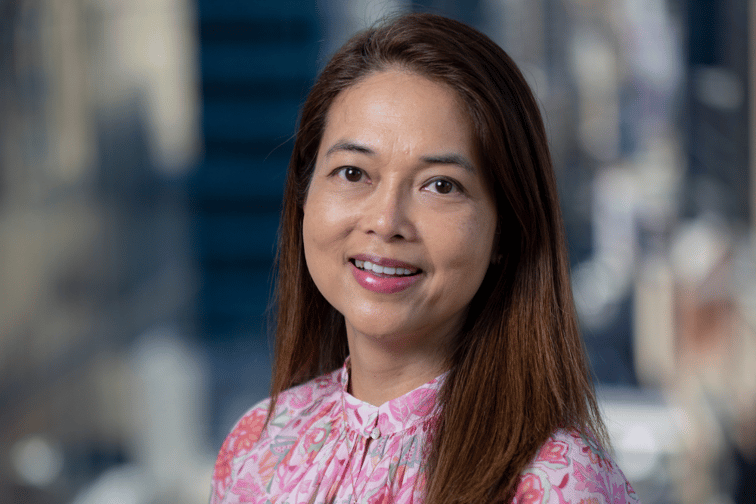

According to figures on HDI Global SE’s (HDI) website, the Germany-headquartered international insurance company runs more than 5,000 international insurance programs (IPs) for global companies. Together, these IPs have created about 23,000 local insurance policies bound by the specific regulations in each relevant country.
“When we analysed it further, we figured out that HDI is probably one of the largest insurers in the IP space,” said Stefan Feldmann (pictured below), head of HDI Global Asia-Pacific.
Feldman said there are a limited number of insurers who can provide this kind of insurance coverage. “It’s basically just internationals,” he said.
The Australian portion of that IP business is relatively small, but, in recent years, Sydney-based Feldmann and his local team have seen a considerable uptick. The growth has continued despite the current wider economic challenges.
“We almost doubled our number last year, so it’s massive growth,” said Feldmann.
Figures shared with Insurance Business show that HDI’s Australian operation ran 36 IPs in 2019. By the end of last year that figure had risen to more than 100, generating almost 500 local policies across the globe.
Feldmann said Rinnah Roque (pictured top), his firm’s service delivery manager for the Producing Office International Programs, deserves a lot of credit.
“Particularly since Rinnah joined us three years ago, we’ve revamped a lot of our underwriting teams, particularly in liability and we’ve picked up so many new international programmes out of Australia now,” he said.
Local brokers with international clients are an essential part of this business.
“Yes, I think there’s been significant growth from 2019 to 2022, primarily, because we’ve done a lot of work,” said Roque. “Our underwriters were constantly talking about international programmes and our capabilities to the brokers.”
Feldmann said other insurers in this space have “lost focus” which also brought opportunities for HDI.
Roque, said she believes a “major difference” now between HDI and any local competition is her firm’s efficiency.
“One of our clients who just moved to us is a major Australian bank,” she said. “They’d given us a KPI of 90 days to issue a policy but we managed to deliver it after 59 days for 17 countries.”
Another contributing factor to HDI’s uptick in IP business in Australia is likely the changing global business environment. Bethan Moorcroft recently detailed how digitalization, climate change, the COVID-19 pandemic, Russia’s invasion of Ukraine and economic challenges – to name a few – could all be pushing international firms towards more use of IPs.
In contrast with this fluid and potentially risky global business environment, Feldmann said that once an IP program is successfully structured and in place, “clients and brokers don’t move very often.”
However, he said, compared to other insurance offerings, IPs take a long time and are “quite work intensive.”
Most of HDI’s IP business, said Feldmann, is in property and liability insurance lines. They also do marine, accident and health, motor fleet, engineering, construction and specialty lines including directors and officers (D&O) and professional indemnity (PI).
Roque described her firm’s international programs as an “an insurance solution for our multinational clients” rather than a product or a policy.
“If the parent company is domiciled in Australia, we [HDI in Australia], as the producing office, will instruct the whole world to issue the local policies and the master policy will come from us,” she said. “So our underwriters, the brokers and the client agree on terms and conditions for all the client’s companies around the world.”
Roque said all of these local policies are reinsured back to Australia.
“If you have a multinational Australian company, like the big banks for example, we then issue the master policy in Australia and then our offices around the world [servicing offices] produce the local policy in the respective countries where they have locations,” said Feldmann.
Apart from the IPs for Australian based global businesses – where the firm has seen the uptick in business –Feldmann’s Sydney office is also issuing the local policies for global firms headquartered elsewhere but with operations in Australia.
“Many [of the master policies] are out of our HDI headquarters in Germany, or German speaking countries like Switzerland and Austria,” he said. “In those cases we issue the local policy in Australia.”
Feldmann said HDI issues local insurance policies for “most” of the German companies here.
Roque, who has more than a decade of IP experience, said her main challenge is translating the client’s requirements across the globe.
“So if we agree on terms and conditions here in Australia, the client would probably expect that whatever they agreed here will be done in other countries where they operate as well,” she said.
However, she said, there is obviously a need to adapt the master policy to meet local regulatory requirements.
“We help clients navigate these differences with what’s being issued across the globe so we land on a good local standard wording,” said Roque.
She said one very useful tool here is HDI’s base wording which eliminates a lot of back and forth between the producing office and the servicing office.
Another challenge Roque often encounters, she said, is cultural differences.
“The way we run things here in Australia is different from the way it’s being run in China, or Indonesia, or in other parts of the world,” she said.
Working across international time zones is also tricky. Time, said Roque, is her “nemesis.”
“Clients would often require certificates of insurance once it’s bound,” she said. “But our offices are open in different time zones so we need to be able to get things in less than a day - so that’s a big challenge as well.”
